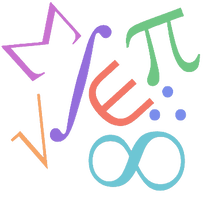|
Course : Real and Mathematical Analysis
Participants : BS in Mathematics and Physics Institution : Sorbonne University Instructor : Dr. Tanujit Chakraborty Timeline : September 2021 to December 2021 Total Teaching Sessions : 60 Email: [email protected] |
Course Introduction:
This course is an introduction to the rigorous foundations of single-variable calculus - real number system; limits; convergence of sequences and series; continuity, differentiability, and integrability of functions as well as multiple-variable calculus. The Course Information below has extensive description of the course - topics, textbook, student evaluation policy, as well as other relevant information. Read it carefully!
What is this course really about?
Mathematicians of the eighteenth century, as present-day high school students, held Calculus as the pinnacle of mathematical sophistication. It was an exciting time in the development of calculus, which had reached a level of maturity after more than 2000 years of gradual development all over the world. There was this sudden explosion in ideas, methods, and applications of Calculus to Physics, Astronomy, and Engineering. Just as we do in present-day Calculus courses, nobody was worried about ‘when and why’ of these methods, and only concern was somehow applying them. But, by the turn of nineteenth century, mathematicians had to finally reckon with the fundamental limitations of these calculus based methods, starting from fundamental definitions of basic concepts like numbers, limits, convergence, etc. We will study these rigorous foundations of calculus in this course.
Prerequisites: Basic Calculus courses, and familiarity with proofs.
Textbook: Understanding Analysis, 2nd edition, Stephen Abbott.
What is this course really about?
Mathematicians of the eighteenth century, as present-day high school students, held Calculus as the pinnacle of mathematical sophistication. It was an exciting time in the development of calculus, which had reached a level of maturity after more than 2000 years of gradual development all over the world. There was this sudden explosion in ideas, methods, and applications of Calculus to Physics, Astronomy, and Engineering. Just as we do in present-day Calculus courses, nobody was worried about ‘when and why’ of these methods, and only concern was somehow applying them. But, by the turn of nineteenth century, mathematicians had to finally reckon with the fundamental limitations of these calculus based methods, starting from fundamental definitions of basic concepts like numbers, limits, convergence, etc. We will study these rigorous foundations of calculus in this course.
Prerequisites: Basic Calculus courses, and familiarity with proofs.
Textbook: Understanding Analysis, 2nd edition, Stephen Abbott.
Interesting Links and Textbooks:
Some interesting links I would suggest all the students to explore:
- Excellent advice by Francis Su on good mathematical writing.
- Why do we have to learn proofs?
- Understanding Mathematics - a study guide
- Excellent advice for math majors, especially those planning to go on to graduate school, by Terry Tao, 2006 Fields medallist.
- Read this book on a variety of experiences in the journey to learn mathematics: Living Proof
- A Historical Timeline of Real Analysis
- Textbooks for alternative points of view:
- A Basic Course in Real Analysis Book by Ajit Kumar and S. Kumaresan.
- Introduction to Real Analysis by Bartle and Sherbert.
- Analysis I by Terrence Tao.
- Mathematical analysis Book by S. C. Malik.
- Topology of Metric Spaces by S. Kumaresan.
- Some of the primary sources of information/discussion for careers in Mathematical Sciences: MAA - Careers | SIAM - Careers | INFORMS - Careers | AMS - Careers
Evaluation Components:
The evaluation components for the Analysis course will be as follows:
1) Mid Term - 1 : 25% ; 2) Mid Term - 2 : 25% ; 3) End Term Test - 50%.
1) Mid Term - 1 : 25% ; 2) Mid Term - 2 : 25% ; 3) End Term Test - 50%.
Lecture Notes:
Course is taught OFFLINE for Sorbonne University (Undergraduate) 2020-2023 students and notes are written on white board in class.
Course is taught OFFLINE for Sorbonne University (Undergraduate) 2020-2023 students and notes are written on white board in class.
PART - 1 : REAL ANALYSIS
PART - 2 : METRIC SPACES
PART 3 : MULTIVARIABLE ANALYSIS
